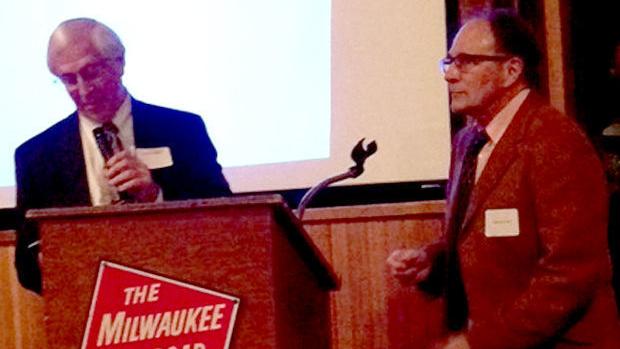
One of the most newsworthy recent COVID quandaries is whether or not there will be a need for booster shots. If so, when?
After reading multiple sources, it seems the jury is quite a ways out on this topic and will be for a while. Sometime beginning with the bottom line is a good start. A May 20, 2021, NBC article quoted the most medically pragmatic person possible, Dr. Anthony Fauci (of Fauci Ouchy fame): “The bottom line is, we don’t know if or when we will need booster shots. But it would be foolish not prepare for the eventuality that we might need it.”
In a computer search for the need for a COVID vaccine booster, the majority of the entries were news reports of the CEO’s of both Pfizer and Moderna, the companies who manufacture the mRNA vaccines, saying yes, we’ll need boosters in the fall or in so many months. And it was unclear if the shot would be the same one or a modified one based on the more current circulating variants. One infectious disease expert at Duke University offered that we don’t know what the protective durability is of the mRNA or J and J vaccines, or any of the others around the world. They haven’t been around that long.
However, several other infectious disease specialists have pointed out that the evidence for the 6-month robust protection from these shots indicates a much longer effect than just a year. One of the most articulate and prolific COVID experts has become Monica Gandhi, M.D., infectious disease specialist at University of California, San Francisco. She just published an “Opinion/Essay” to explain the “7 Reasons Why We Should Not Need Boosters for COVID-19”. If the vaccine immunity is durable, then she doesn’t feel boosters will be necessary in the future, despite CEOs of pharmaceutical companies (who stand to profit from them) preparing boosters.
She begins with a short summary of the main components of our immune system (which is way over simplified by necessity). “There are two major arms of the immune system: B cells [lymphocyte white blood cells], which produce antibodies, and T cells [also lymphocytes], which are formed to attack and kill pathogens [which generate bad biological karma for you as bad bugs and foreign materials]. T cells are divided into two types, CD4 cells or helper T cells, and CD8 cells or cytotoxic T cells, which actually kill infected host cells.” (Are you hanging in there?)
The crucial point for maintaining immunity is that each component, once stimulated by natural infection or vaccine, should hopefully make “memory banks”. So, if your body meets the pathogen in the future, these defenses come roaring back and protect you from sickness. Recent research indicates a likely long lasting response to either the vaccine or virus. Her most compelling seven reasons for that judgment follow.
First was from the study of 12 volunteers who had the Pfizer vaccine but were never infected, and had their lymph nodes biopsied, where memory B cells are stored in “germinal centers”. Cells’ numbers increased a lot in biopsies from 3-7 weeks post vax. After natural COVID infections and antibodies waned, strong memory B cells were detected in the blood of infected individuals 6 and 8 months later.
Second, in other infections, memory B cells can produce large antibody amounts decades after the first encounter. Cells were isolated in 2008 from the blood of 32 people 91-101 years old who were born before 1915 and were infected with the 1918 Spanish flu. In test tubes these cells produced high levels of antibodies, which protected mice from the virus.
Third, vaccine trials measured strong T cell immunity following vaccination. The study of B cells from lymph node biopsies also demonstrated strong and sustained memory T cell production.
Fourth, T cell responses measured via sophisticated technology showed long lasting active immunity. SARS (2002-2003) and MERS (2011) were two other severe coronaviruses that didn’t become pandemics or jump to the U.S., which caused damaging lung disease. A 2020 study found memory T cells in 23 recovered SARS patients that were still reactive to that virus 23 years later.
Sixth, T cell responses from both vaccination and natural infection with the first COVID strain are robust against variant strains.
Seventh, Coronaviruses don’t mutate quickly like influenza viruses, which requires annual booster injections. Mutations can and do arise when transmission is very frequent. That has been somewhat suppressed with vaccines.
Other vaccine experts align more with Dr. Gandhi than the drug CEOs. Paul Offit, M.D., vaccine specialist of Children’s Hospital, Philadelphia, PA: “I would be surprised if we actually needed a yearly booster shot”. U. of Pennsylvania immunologist John Wherry: “I wouldn’t rule out the need for boosters, but the immune response so far looks quite impressive.” There are many similar experts opining in the same tones. The bottom line is what Dr. Fauci said in the first paragraph. Please reread it. And please, please get your primary Fauci Ouchy if you haven’t yet, for the good of you, your loved ones, and all of us. The virus is still teaching us what we need to know.
Dr. Bures, a semi-retired dermatologist, since 1978 has worked Winona, La Crosse, Viroqua, and Red Wing. He also plays clarinet in the Winona Municipal Band and a couple dixieland groups. And he does enjoys a good pun.
June 14, 2021 at 03:30AM
https://ift.tt/3gl7SL1
Frank Bures: COVID vaccine booster needed or not? - Winona Daily News
https://ift.tt/2DVP6sH

No comments:
Post a Comment